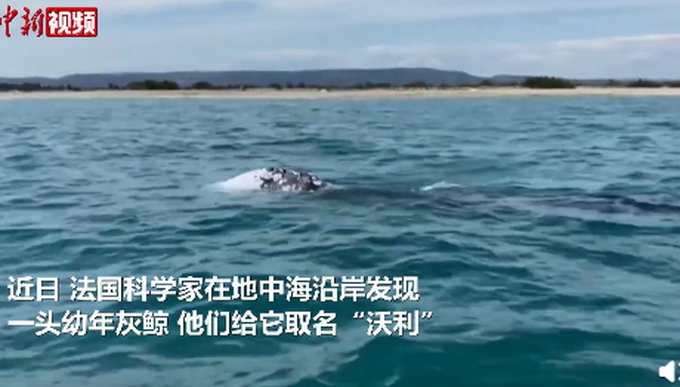Recently, French scientists found a rare, lost gray whale on the Mediterranean coast, and they named it "Wally". The gray whale's natural habitat is in the North Pacific, and scientists speculate that the grey whale appeared in the Mediterranean Sea, most likely due to the melting of Arctic ice due to global warming. It cannot find suitable food for survival in the Mediterranean region and currently has a significant weight loss.

Netizen comments
Netizen: It hurts so much
Further reading: Research shows that global warming is forcing marine life to "escape" the equator
A new study led by the University of Auckland in New Zealand shows that global warming is forcing marine life to change its geographical distribution, "flee" the equatorial region, and migrate in the direction of the poles.
The research team analyzed distribution data from 48,661 marine living species since the 1950s to assess the impact of climate change on species diversity across latitudes. The results showed a decrease in the number of marine species near the equator, while an increase in the number of species in the subtropics. These species include fish, molluscs and crustaceans that live on the seafloor and in the open waters of the middle and upper reaches of the seawater.
The study found that this distribution change is more pronounced in the northern hemisphere where the effect of ocean warming is more pronounced. In addition, because ocean warming is more pronounced in the upper middle and upper reaches of the seawater, marine life living in the open waters of the middle and upper layers of the sea is more vulnerable to the effects of climate change than those living on the seabed.
According to the study, the climate in the tropics was once considered stable and had an ideal living temperature for many organisms, so there are many species of organisms in this area. However, it must now be realized that the tropics are becoming hotter and hotter for many species.
Mark Costello, a professor of marine biology at the University of Auckland, said the study showed that climate change is already affecting marine biodiversity on a global scale.
(Original title: Juvenile gray whales get lost in the Mediterranean Sea Thousands of kilometers away from their habitat) Source: Northern Evening New Visual Synthesis China News Network Xinhua Network Netizen Comments